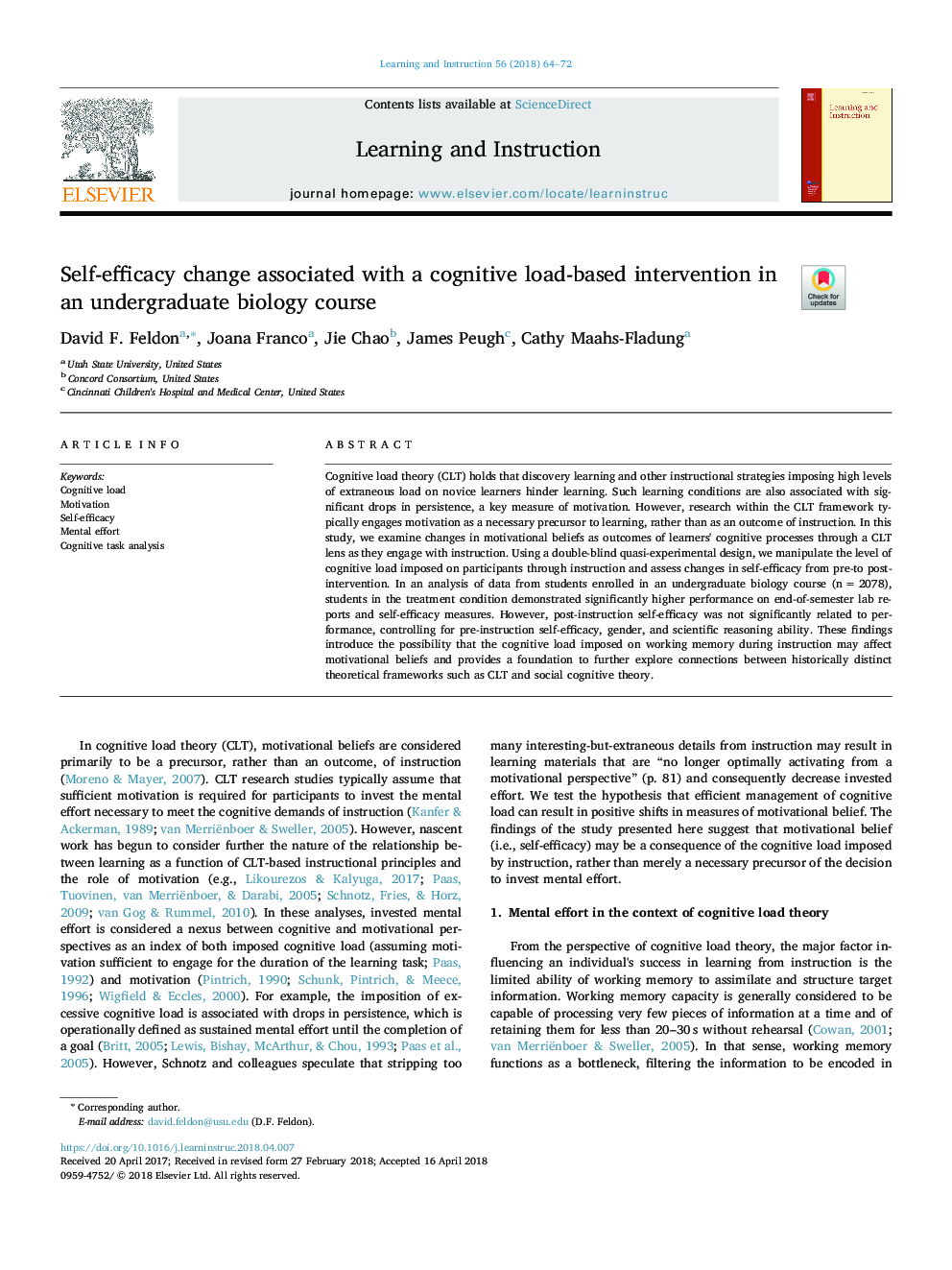| کد مقاله | کد نشریه | سال انتشار | مقاله انگلیسی | نسخه تمام متن |
|---|---|---|---|---|
| 6845534 | 1436405 | 2018 | 9 صفحه PDF | دانلود رایگان |
عنوان انگلیسی مقاله ISI
Self-efficacy change associated with a cognitive load-based intervention in an undergraduate biology course
ترجمه فارسی عنوان
تغییر خودکارآمدی در ارتباط با مداخله شناختی مبتنی بر بار در دوره زیست شناسی دوره کارشناسی
دانلود مقاله + سفارش ترجمه
دانلود مقاله ISI انگلیسی
رایگان برای ایرانیان
کلمات کلیدی
بار شناختی انگیزه، خود کارآمدی، تلاش ذهنی، تجزیه و تحلیل وظیفه شناختی،
موضوعات مرتبط
علوم انسانی و اجتماعی
روانشناسی
روانشناسی رشد و آموزشی
چکیده انگلیسی
Cognitive load theory (CLT) holds that discovery learning and other instructional strategies imposing high levels of extraneous load on novice learners hinder learning. Such learning conditions are also associated with significant drops in persistence, a key measure of motivation. However, research within the CLT framework typically engages motivation as a necessary precursor to learning, rather than as an outcome of instruction. In this study, we examine changes in motivational beliefs as outcomes of learners' cognitive processes through a CLT lens as they engage with instruction. Using a double-blind quasi-experimental design, we manipulate the level of cognitive load imposed on participants through instruction and assess changes in self-efficacy from pre-to post-intervention. In an analysis of data from students enrolled in an undergraduate biology course (nâ¯=â¯2078), students in the treatment condition demonstrated significantly higher performance on end-of-semester lab reports and self-efficacy measures. However, post-instruction self-efficacy was not significantly related to performance, controlling for pre-instruction self-efficacy, gender, and scientific reasoning ability. These findings introduce the possibility that the cognitive load imposed on working memory during instruction may affect motivational beliefs and provides a foundation to further explore connections between historically distinct theoretical frameworks such as CLT and social cognitive theory.
ناشر
Database: Elsevier - ScienceDirect (ساینس دایرکت)
Journal: Learning and Instruction - Volume 56, August 2018, Pages 64-72
Journal: Learning and Instruction - Volume 56, August 2018, Pages 64-72
نویسندگان
David F. Feldon, Joana Franco, Jie Chao, James Peugh, Cathy Maahs-Fladung,
